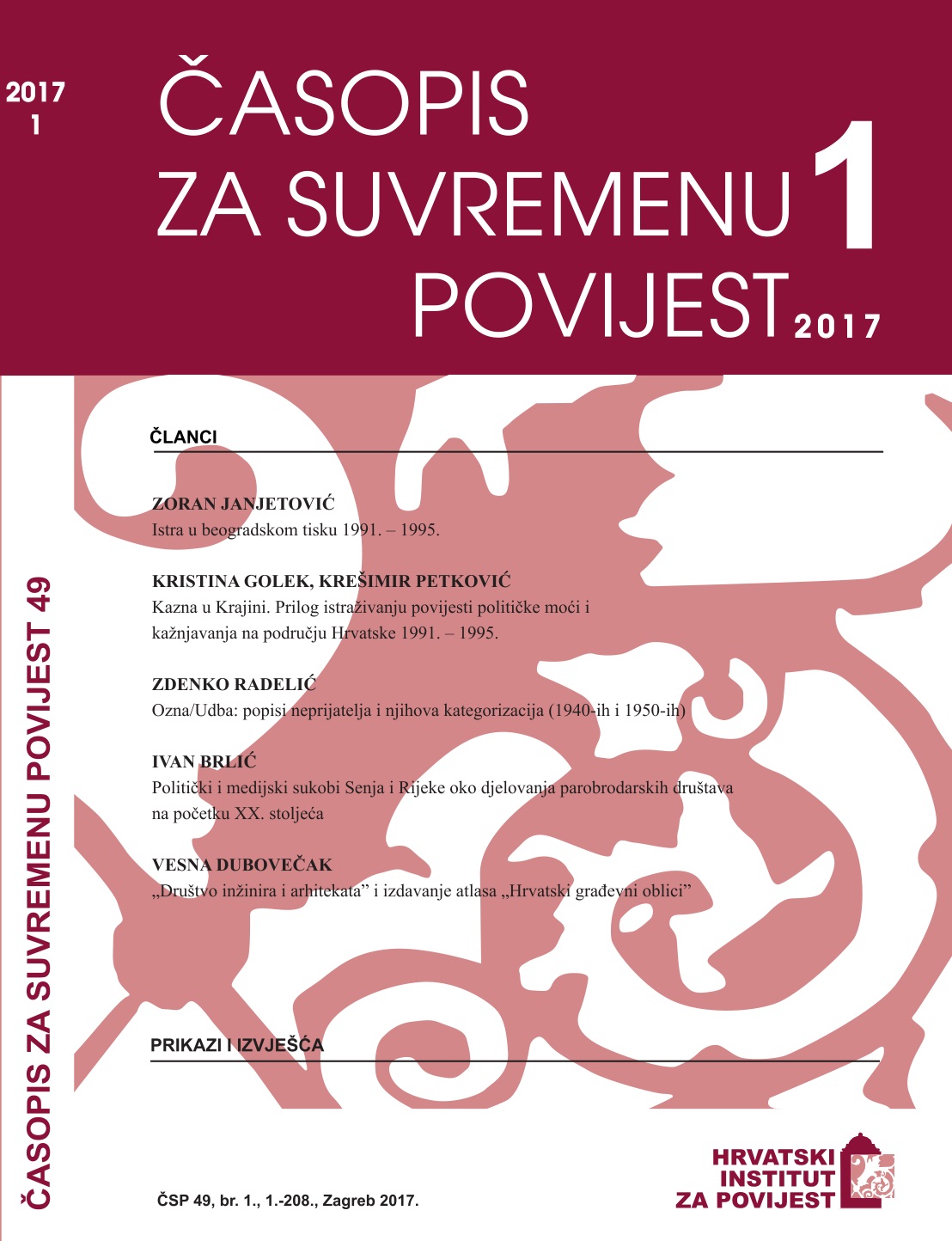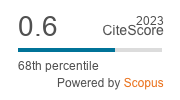The Political and Media Conflicts between Senj and Rijeka Regarding the Activities of Steamship Companies in the Early 20th Century
DOI:
https://doi.org/10.22586/csp.v49i1.11Keywords:
Croatian Steamship Company (Senj); Ungaro-croata steamship company; Josip Gržanić; Hrvat (newspaper); Novi list (newspaper); Frano SupiloAbstract
This work addresses the question of dominance over steamship traffic in the Croatian Littoral region and the Velebit Channel. The main research topics are the Senj-based Croatian Steamship Company and the Rijeka-based steamship company Ungaro-croata, whose representatives were wealthy Croatian merchants and landowners from the Croatian Littoral, Senj, and Lika.
Following the appearance of the rival Senj-based steamship company in 1903, numerous accusations, bribes, and other unprofessional or underhanded means of communication were used by members of both companies. A number of these people were also members of the editorial boards of the most important papers in Gospić (Hrvat) and Rijeka (Novi list), which served as vehicles for public criticism of the business activities of steamship companies, but also brought into question the national character of the activities of the companies themselves and the political views of certain shareholders. On the one hand, members of the Croatian Party of Right who were also shareholders of the Croatian Steamship Company in Senj tried to use various forms of public statements to discredit the activities of the Rijeka-based steamship company Ungaro-croata, accusing its leaders, who were allegedly assisted by Hungarian capital and subventions, of helping the activities of Frano Supilo, chief editor of the Rijeka newspaper Novi list. Even though the editorial board of Novi list was initially journalistically neutral after the Senj-based steamship company was founded, this paper soon began publishing many accusations and criticisms of the activities of Senj-based shippers and politicians. It’s an indisputable fact that the Croatian Steamship Company was incapable of seriously threatening the business activities of a powerful steamship company like Ungaro-croata. Polemics between these political party members continued after the signing of the Rijeka Resolution in late 1905, but they no longer involved the steamship companies. This last Senj-based steamship company came to an inglorious end after the end of World War I, when its business was completely taken over by a new Sušak-based company.
Downloads
Published
How to Cite
Issue
Section
License
Copyright (c) 2017 authors and journal

This work is licensed under a Creative Commons Attribution-NonCommercial 4.0 International License.
Copyright holders are the publisher Croatian Institute of History and the authors. Journal of Contemporary History is an Open Access journal. Users are allowed to read, download, copy, redistribute, print, search and link to material, and alter, transform, or build upon the material, or use them for any other lawful purpose as long as they attribute the source in an appropriate manner according to the Creative Commons licence CC BY-NC. The papers published in Journal of Contemporary History can be deposited and self-archived in the institutional and thematic repositories providing the link to the journal's web pages and HRČAK. Journal does not charge article processing charges (APC). The editors assume no responsibility for statements of fact or opinion made by contributors.




